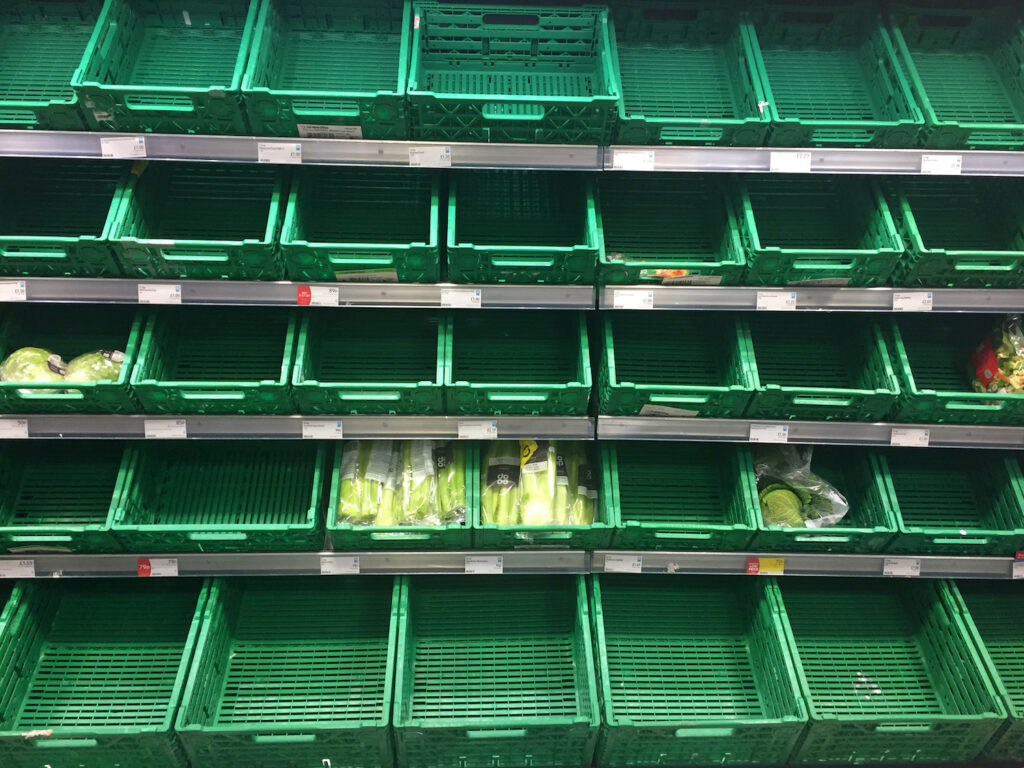Supermarkets cap sales of some fruits and vegetables amid reports of empty shelves
22nd February 2023
Shortages are being put down to extreme weather in Spain and north Africa – while the NFU warns British produce could also be in short supply this year due to high energy costs putting pressure on growers.

Stock photo for illustration only.
Morrisons and Asda have limited the sale of certain fruits and vegetables after pictures of empty supermarket shelves began circulating on social media a few days ago.
From Tuesday (21st February), Asda capped the sales of items such as lettuce, peppers, tomatoes, cucumber and raspberry punnets, at three per customer – while Morrisons limited certain products to two per person.
The shortages are said to be the result of extreme weather conditions in Spain, Morocco and north Africa. In winter, the UK imports 95% of its tomatoes and 90% of lettuces, mostly from Spain and north Africa, according to the British Retail Consortium.
UK growers have also cut back on their use of greenhouses to grow winter crops due to soaring electricity prices. NFU president Minette Batters told Sky News that a range of British vegetables are at risk of being rationed this year as farmers struggle to meet energy costs.
She called on the government to extend the Energy and Trade Intensive Industries scheme to horticulture and poultry, which are currently excluded despite being some of farming’s most energy-dependent sectors.
Farming minister Mark Spencer declined to rule out rationing but said it was not expected, in response to a question from Sky News during a news conference.
With record heat and prolonged drought in many parts of the world last summer, Ms Batters is quoted as saying: “That’s an even greater need for us to take all self-sufficiency seriously and be producing more of our fruit and vegetables here, which has been the ambition that we have held for a long time.”
Commenting on the shortages, Professor Michael Winter, an agricultural expert from the University of Exeter, said:
“Given the need for greater consumption of fruit and salad crops to ensure healthy diets, the current shortage is not good news. The immediate cause is a combination of poor weather in north Africa and southern Europe combined with the impact of high energy prices hitting glass house production in the Netherlands and elsewhere, as well as on-going labour issues. But this masks an underlying problem of decline and under-investment in horticulture in this country over many decades.
“We have become used to depending on overseas imports but facing the global challenges of climate change and energy, it is now time to incentivise local horticultural production for local markets.”
